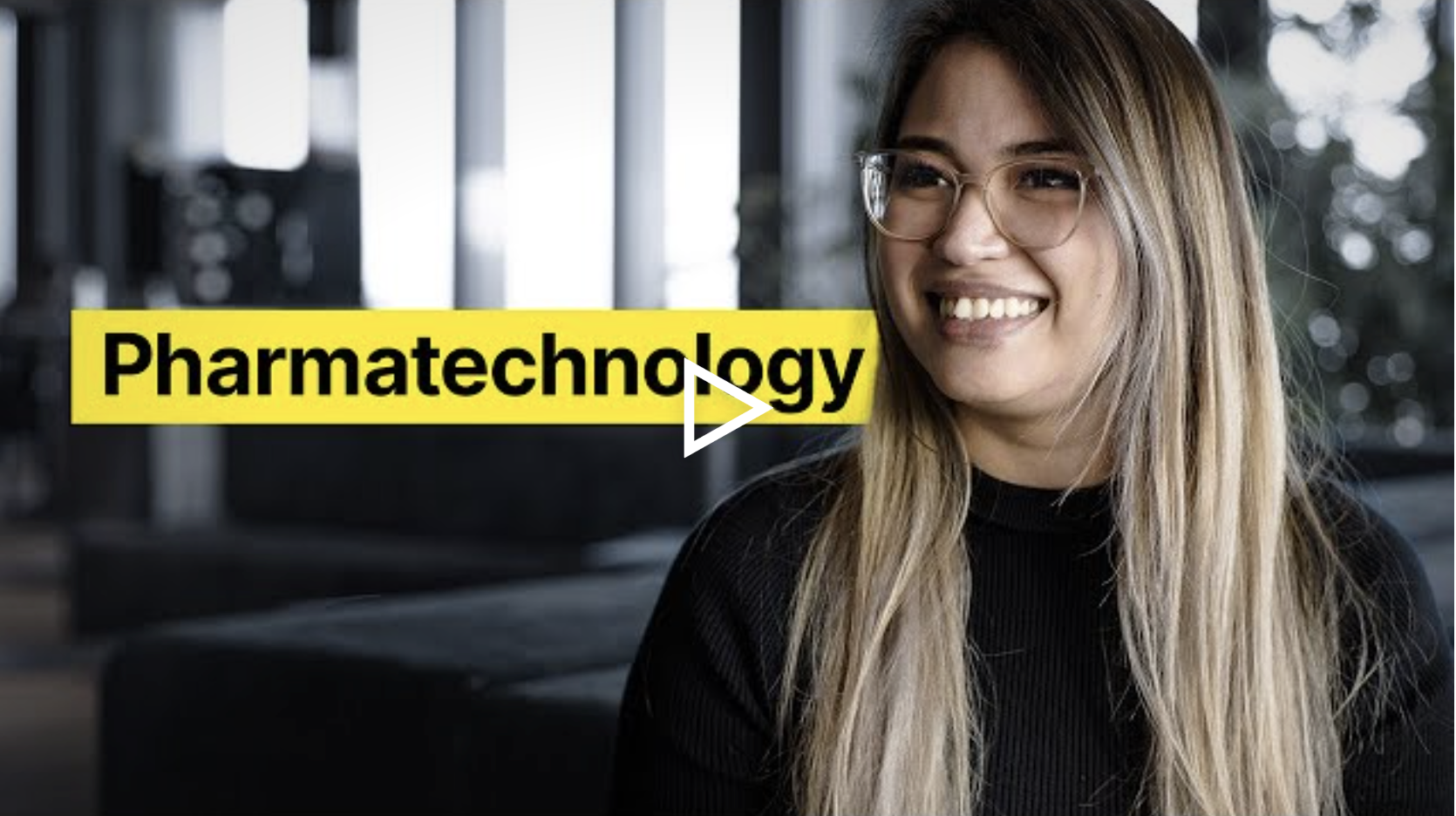MSc in Life Sciences - Pharmatechnology
Hochschule für Life Sciences FHNW
Take an active role in shaping the future of pharmaceutical manufacturing. This Master’s programme gives you in‑depth knowledge and practical skills to develop and produce innovative, safe and high‑quality medicines.

- Practical training with state‑of‑the‑art technology: Gain expertise in continuous pharmaceutical production and formulation of biologics using modern laboratories and production facilities.
- Individual programme design: Choose from a wide range of modules to tailor your studies to your interests and career goals.
- Career‑enhancing thesis: Prepare for senior roles by completing an eight‑month Master’s thesis in industry or research.
- International opportunities: Complete your Master’s thesis abroad or earn a double degree at one of our partner universities.
Steckbrief
Zukunftsaussichten
What career opportunities are open to you?
With a Pharma Technology specialisation, you are well positioned for a career in the pharmaceutical or biomedical industries. The demand for safe and effective medicines is constantly growing, offering long‑term career prospects in a global sector. Your expertise is sought by major corporations such as Roche and Novartis, medium‑sized companies, and specialised service providers. Opportunities also exist in pharmaceutical engineering, consulting and regulatory authorities.
Typical areas of employment for graduates include:
- Contract research and manufacturing companies (CROs/CMOs): Planning and execution of pharmaceutical projects.
- Pharmaceutical engineering: Conception and optimisation of technical processes and production facilities.
- Consulting firms in the Life Sciences sector: Strategic and regulatory advice.
- Regulatory authorities: Evaluation and approval of drugs and medical devices.
- Medium-sized pharmaceutical companies: Development of innovative niche products and technologies.
Aufbau und Inhalte
The programme provides a rigorous, practice‑oriented education aligned with the current and future needs of the pharmaceutical industry.
You will gain expertise in the following areas:
- Formulation and administration of medicines: Development of suitable pharmaceutical forms and their manufacture on a lab and industrial scales.
- Formulation of biologics: Specialised training in developing and stabilising biological agents.
- Continuous pharmaceutical production: An entire module is dedicated to the modern focus on this technique.
- Pharmaceutical production facilities: Planning and technical implementation of production facilities for medicine manufacture.
- Elective modules from related fields: Opportunities for specialisation in Analytical Chemistry, Applied Cell Biology, Biotechnology and Bioanalytics.
In addition to the wide range of subject-specific modules, the interdisciplinary modules allow you to put together your own individual study programme. This will help you strengthen your skills in:
- Management and leadership: Business administration and leadership in Life Sciences.
- Innovation and project management
- Data analysis and visualisation: Modern techniques for planning and analysing experiments and modelling multivariate data.
Module Groups for the specialisation in Pharma Technology
A total of 50 ECTS credits (i.e. 17 modules each worth 3 ECTS credits) must be earned. Other modules can be selected: Module overview (English)
You can also plan your studies in advance with our MSc Life Sciences planning tool.
Details on the degree programme
Vertiefungen
International
Students can apply to do an additional semester at at the University of Chemistry and Technology, Prague and thus obtain a double degree. Independently of the double degree, you may also complete your Master’s thesis abroad to gain international experience. Further information is available from the International Office or here: Double Degree.
Leitung und Dozierende
Voraussetzungen, Zulassung, Eignungsabklärung
Direct admission requires
If you do not fully meet the requirements, you may be invited to a personal interview.
Proof of sufficient English skills must be provided with one of the following certificates:
If you are unable to provide evidence of the required command of English, you are obliged to improve it during the course of your master’s degree programme. You can either attend the advanced English course offered by the FHNW School of Life Sciences or other suitable language courses. At the end of the programme, proof must be provided that the required level of English has been achieved (see table above).
